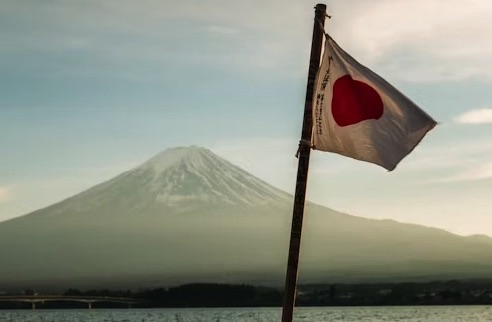On the 6th of August in Hiroshima and the 9th in Nagasaki, Japan marked the 80th anniversary of the dropping of the two atomic bombs. The two cities held major events, ceremonies, talks, and protests, reflecting the gravity of these dates in history. As each year passes, the number of survivors decreases, and the reality of their painful memories becomes increasingly scarce. The survivors, though fewer in number, still carry with them the heavy burden of witnessing one of the most horrific moments in human history.
The anniversary events themselves were mostly solemn, with survivors recalling their experiences and calling for peace. Hiroshima and Nagasaki are often portrayed as symbols of the horrors of war, and for good reason. Yet, amidst the solemnity, there’s a disturbing silence that continues to hang over Japan’s role in the lead-up to these bombs being dropped. Japan, rather than fully confronting its imperial past, remains largely silent or downplays the events that precipitated the bombings. The rhetoric from Japan’s government, and especially its right-wing factions, often tries to shift the focus away from their wartime atrocities, emphasizing instead the suffering caused by the bombs themselves. This silence or selective memory about its imperialist aggression remains a problem that needs addressing.
The Left and the Anti-Nuclear Movement
The anniversary was not just marked by ceremonies, but also by protests, especially from the left-wing anti-nuclear movement. Protesters took to the streets to demonstrate against nuclear weapons, often drawing parallels with other global conflicts, such as the ongoing Israeli-Palestinian tensions These protests are often ideologically complex, as many in the left-wing movement find themselves in a strange alignment with the Japanese right on issues of ultra-nationalism. In some ways, the left’s anti-nuclear stance overlaps with the right’s view of Japan as a victim of nuclear war, a stance which often leads to a mixed message when it comes to Japan’s own wartime history. The hypocrisy is clear—protests against the suffering of the world’s oppressed are common, but the real reckoning with Japan’s past remains conspicuously absent. The left can cry out for the victims of Gaza or other oppressed people worldwide but, for some reason, remain strangely silent when it comes to acknowledging Japan’s own brutal history of imperialism.
The Japanese Take on Its Imperial Past
When you visit places like the Hiroshima Peace Memorial Museum or the Nagasaki Atomic Bomb Museum, it’s impossible to ignore the overwhelming focus on the bombings themselves—on the human suffering, the destruction, and the aftermath. The exhibitions are deeply moving and serve as a stark reminder of the horrors of nuclear war. But what’s glaringly missing is any serious acknowledgement of the events that led to the bombings in the first place. The Japanese imperialist aggression that spanned much of East and Southeast Asia, including the invasion of China, Korea, and other nations, is given minimal attention. The museum exhibits focus on the victims, the destruction, and the pain of the bombings, but there is no real effort to look at the broader picture of Japanese militarism and its expansionist ambitions.
This omission becomes even more egregious when you look at places like the Yūshūkan Museum in Tokyo, which presents an even more distorted and dangerous version of history. At Yūshūkan, the history of Japan’s actions during World War II is presented as the noble actions of a country fighting for its own survival. Claims that Japan “liberated” Korea are deeply offensive to Koreans, and the Nanjing Massacre is dismissed as a mere “incident,” completely ignoring the scale of the atrocity, including the systematic rape and slaughter of civilians. It’s not just a simplification—it’s outright propaganda, a deliberate rewriting of history that seeks to sanitize and justify Japan’s wartime actions. The museum even goes so far as to minimize the role of war criminals, portraying them as innocent victims of American aggression. This disturbing historical revisionism is a key part of Japan’s ongoing failure to fully confront its imperial past.
Conclusion
These anniversaries should be taken seriously. The 80th anniversary of the atomic bombings is not just about remembering the horrors of nuclear war; it is about confronting the underlying causes of those horrors and understanding that history is not just something to be mourned but something to be learned from. Japan, as a nation, needs to come to terms with its imperial past and acknowledge the full scale of the suffering it caused across Asia. The world, too, must stop glossing over the many horrors that continue to take place around the globe. Nuclear war is only one aspect of the broader issue of violence, suffering, and historical injustice. Only by facing up to these truths can we begin to prevent such atrocities from ever happening again.

